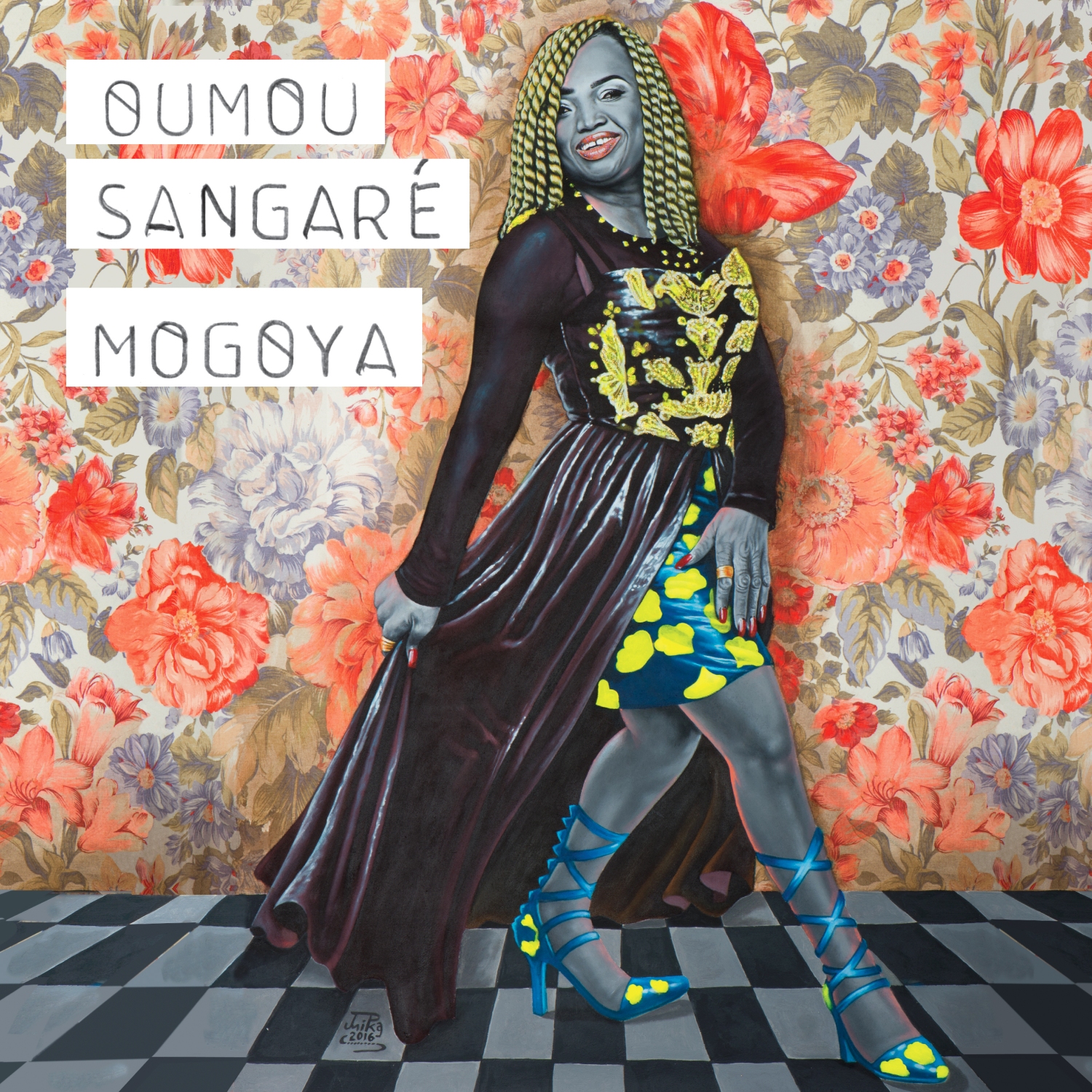It has been eight years since we’ve heard an album of new music from Mali’s reigning queen of Wassoulou music, Oumou Sangaré. In fact, including her smashing debut Moussoulou (Women) in 1989, Sangaré has made just five studio albums. So Mogoya (People Today) is automatically noteworthy, all the more so because it is her boldest, most adventurous work to date. Sangaré created these nine songs with young producers in Sweden and France, not with the U.K.-based World Circuit team behind her previous efforts. Her aim was to break the standard Wassoulou music mold and update the sound to reach younger listeners. The tempos are faster, the grooves more dance-focused, the production more electronic. But strong at the center, devoid of any apparent processing or effects, is one of the most lyrical, seductive and authoritative voices in all of African music.
The album opens with filigree acoustic guitar, an elegant front-porch jam with ambient voices heard in the background. Then drums, bass and percussion pounce with muscular resolve. As the track, “Bena Bena” (Ingratitude), builds in density, we hear the signature Wassoulou kamelengoni harp along with keyboards and backing vocals, but Oumou’s urgent vocal rides above all resolving into a long, ecstatic cry. Wow! Song after song, the textures change, driving with swells of organ on “Fadjamou” (Family Name), tumbling 12/8 with rock guitar, echo-drenched backing vocals and off-kilter accents on “Djoukourou” (Support), loping kamelengoni and billowing bass on a club-ready remake of Sangaré’s classic takedown of manipulative womanizers, “Kamelemba.”
“Yere Faga” (Suicide) is a poignant plea for those who’ve lost hope to reconsider their options. The song features the legendary founding drummer of Nigerian Afrobeat, Tony Allen. This is a pairing long in the works, as the two musicians are old friends, and Allen has been visiting Mali regularly in recent years. The track opens beautifully mostly with just those two iconic sounds: her nightingale voice and his signature slinky shuffle.
Sangaré’s messages remain strong, whether warning against the danger of rumors and gossip (“Kounkoun”) or pleading with young Malians not to give up on their country and risk their lives on the high seas to exile (“Mali Niale”). She memorializes her mentoring mother on “Minata Waraba,” and frets about the breakdown of human relationships in the wake of Mali’s 2012-13 political crisis on the poised, reflective “Mogoya” (People Today). As she told me by telephone from Paris, “In Wassoulou, we sing to advise people, to educate through music.”
In the process, Sangaré has created one of the most bracingly entertaining albums of the year. Some may lament her departure from form, but there’s no mistaking the vitality in these performances. Sangaré says working in new ways with a new team has reinvigorated her, and that shows brightly throughout this important album.









